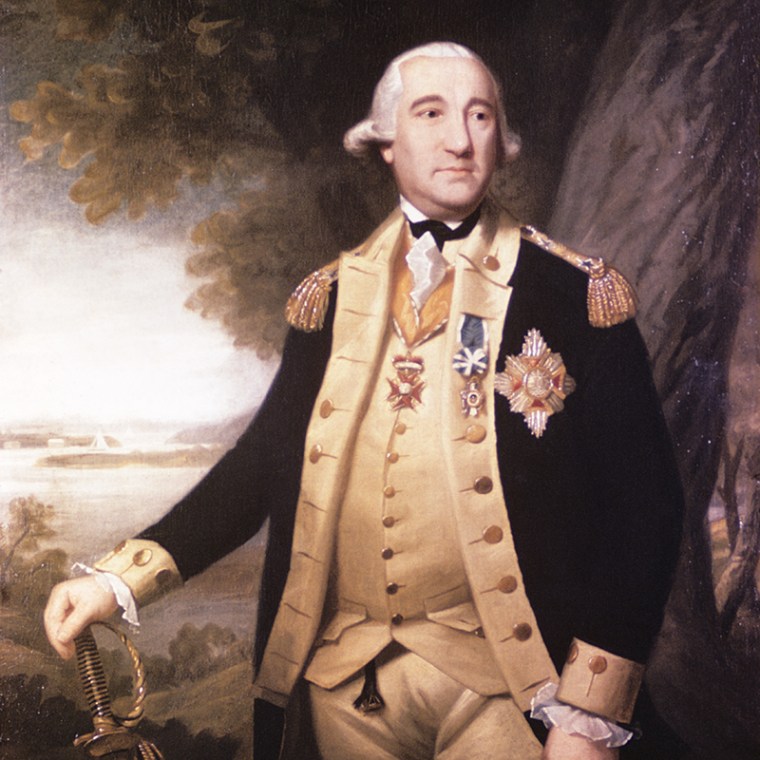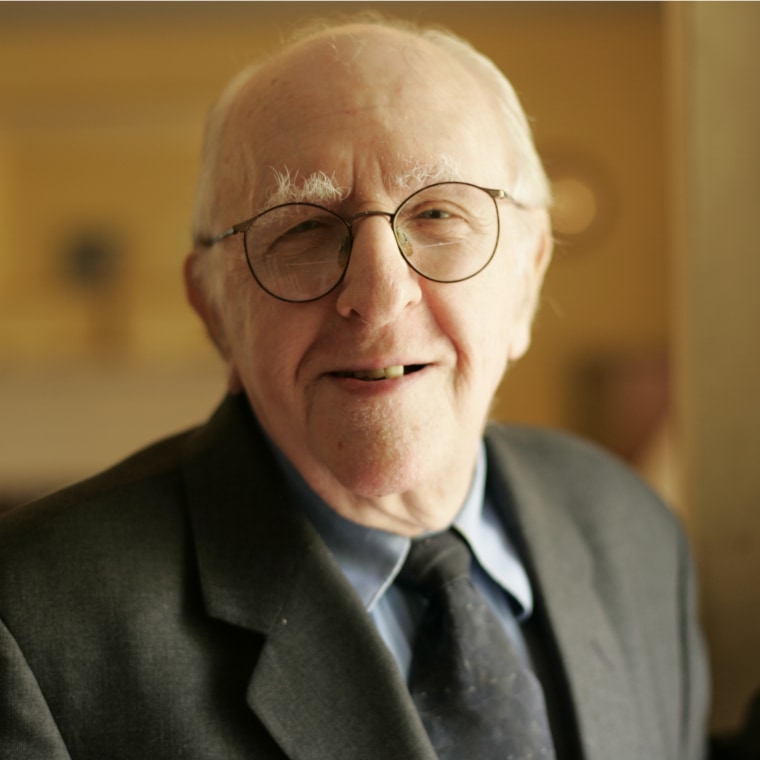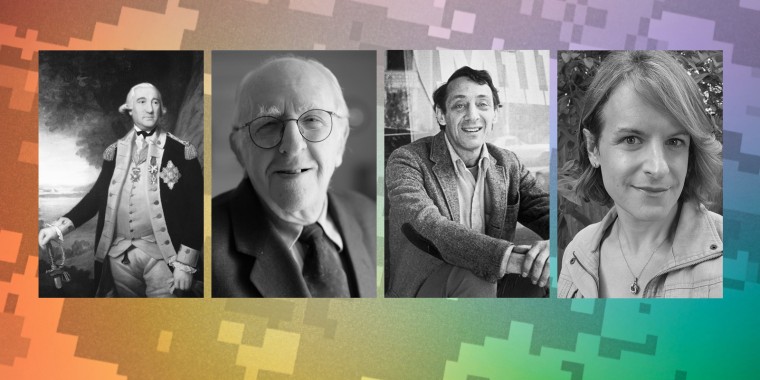Today is the first Veterans Day since the Trump administration’s ban on transgender service members was lifted.
Four days after taking office, President Joe Biden signed an executive order repealing the ban, allowing LGBTQ Americans to fully participate in military service.
“America’s strength is found in its diversity,” the White House said in a statement at the time. “America is stronger, at home and around the world, when it is inclusive. The military is no exception. Allowing all qualified Americans to serve their country in uniform is better for the military and better for the country because an inclusive force is a more effective force.”
A decade earlier, the repeal of “don’t ask, don’t tell” allowed gays and lesbians to serve openly after centuries of hiding, persecution and dishonorable discharges.
Below, we salute some of the lesbian, gay, bisexual, transgender and queer service members who paved the way for a more inclusive force.
Lt. Gen. Friedrich von Steuben

Without this gay military genius, the Continental army might not have won the Revolutionary War.
Friedrich von Steuben joined the Prussian army as a teen, eventually becoming an aide-de-camp to Frederick the Great, who was also rumored to be gay. But In 1763, at 33, Steuben was unceremoniously discharged “under a cloud, hounded by accusations of having relations with young men,” according to The Gay and Lesbian Review.
Searching for better fortunes, he headed to France in 1777, where he met American patriots Silas Deane and Benjamin Franklin, who were looking for seasoned military officers to help fight the British in the colonies. Realizing his prospects in Europe were dim — and perhaps to avoid prosecution — Steuben accepted their offer.
According to Randy Shilts’ “Conduct Unbecoming: Gays and Lesbians in the U.S. Military,” Franklin and Deane likely knew of Steuben’s indiscretions. An anonymous letter indicating the Prussian had been accused of “having taken familiarities” with young men, which the laws “forbid and punish severely” had made the rounds.
But Steuben’s expertise in training and tactics outweighed any sex scandal. In fact, in a letter to Gen. George Washington, Franklin exaggerated von Steuben’s military resume, a falsehood described as “the greatest public deception ever perpetrated in a good cause,” according to Thomas Fleming in “Washington’s Secret War: The Hidden History of Valley Forge.”
Arriving at Valley Forge in February 1778 with his Italian greyhound, Azor, and his 17-year-old male secretary, Steuben began training the ragtag colonial troops on basics — such as standing at attention, marching drills and wielding a bayonet — and established standards for camp layouts and sanitation.
It was at Valley Forge that Steuben met young Benjamin Walker, whose fluency in French allowed him to translate the Baron’s directions into English. “If I had seen an angel from Heaven, I should not have more rejoiced,” Steuben said of Walker, a future U.S. representative. According to historian William E. Benemann, there was always “an element of flirtation in Von Steuben’s letters,” and Walker, at the very least, was happy to play along to gain favor.
At any rate, Steuben gave colonial soldiers “the kind of training and understanding of tactics that made them able to stand toe to toe with the British,” historian Larrie Ferreiro wrote in his book ”Brothers at Arms.”
The Prussian officer established a system of noncommissioned officers at Valley Forge, and trained leaders in turn drilled thousands more, creating an efficient system that “helped lead America to independence and laid the foundation of training that the Army continues to this day,” according to NCO Journal, an official Army publication aimed at noncommissioned officers.
Steuben served as inspector general and a major general of the Continental army during the Revolutionary War, finally becoming Washington’s chief of staff. In fact, the future president’s last act as general was to write Steuben a letter thanking him for his service.
Dated Dec. 23, 1783, the day Washington resigned as commander in chief, it read, “I wish to make use of this last moment of my public life, to signifie in the strongest terms my entire approbation of your conduct, and to express my sense of the obligations the public is under to you, for your faithful and meritorious services.”
Steuben eventually retired and settled down in an estate in Oneida, New York, where he died in 1794. He left the bulk of his assets to Walker and two other former young aides, William North and John Mulligan. His property was eventually incorporated into the town of Steuben, named in his honor — as were a warship, submarine and ocean liner.
Steuben is honored with a bronze statue in Lafayette Park in Washington, D.C., and the Steuben Parade, held each September down New York’s Fifth Avenue.
Frank Kameny

One of the Founding Fathers of the modern gay rights movement, Frank Kameny enlisted in the Army in 1943, serving in Europe throughout World War II.
After the war, he earned a doctorate at Harvard University and taught astronomy at Georgetown University, In 1957, Kameny had just started working for the Army Map Service, with hopes of being an astronaut, when he was terminated after investigators uncovered evidence he was a homosexual.
Kameny, then 32, appealed the firing, arguing that flatly labeling gay people a security risk was “no less odious than discrimination based upon religious or racial grounds.”
In 1961, his case made it all the way to the Supreme Court. The justices refused to hear the appeal, but it marked the first time the high court even considered a civil rights case based on sexual orientation — and it galvanized Kameny into becoming a lifelong activist for equality for gays and lesbians.
Four years later, in 1965, Kameny, Kay Tobin and Barbara Gittings started the Annual Reminders, the first organized picket protests for gay rights in America, held at Philadelphia’s Independence Hall.
In the 1970s, Kameny become the first openly gay candidate for Congress and challenged the American Psychiatric Association’s diagnosis of homosexuality as a mental disorder, according to a 2015 Department of Labor release.
In 2009, the U.S. Office of Personnel Management, the successor to the Civil Service Commission, issued a formal apology to Kameny, expressing remorse for the government’s “shameful action” in firing him.
“With the fervent passion of a true patriot, you did not resign yourself to your fate or quietly endure this wrong. With courage and strength, you fought back,” said OPM Director John Berry, himself an out gay man, the Washington Post reported.
In December 2010, Kameny was invited to the White House to witness President Barack Obama sign the repeal of “don’t ask, don’t tell” into law. Kameny died less than a year later, on Oct. 11, 2011, three weeks after the repeal officially went into effect.
In April 2011, seven months before his death, his 1961 petition to the Supreme Court was put on display at the Library of Congress.
“It took 50 years, but I won my case,” he told The Associated Press at the time. “All I can say is from the long view, 50 years, we have moved ahead in a way that would have been absolutely unimaginable back then.”
In 2012, an asteroid, Minor Planet 40463, was officially named Frankkameny in his memory. And on June 2, 2021, a Google Doodle was dedicated in Kameny’s honor,
“Everyone should know his name,” historian Eric Cervini, author of “The Deviant’s War,” told NBC News last year. “Every single person who identifies as part of the LGBTQ+ community can thank Frank for developing what we now celebrate each and every June, which is Pride.”
Fannie Mae Clackum
Though less well known than Kameny, Clackum became the first service member to successfully challenge a military discharge on the grounds of homosexuality.
Clackum was an U.S. Air Force reservist in the 1950s when her superiors suspected her and another female enlistee, Grace Garner, of being lesbians. In 1951, the Air Force’s Office of Special Investigations (OSI) arranged an overnight motel stay for the women, then used the trip as a pretense to launch an investigation into their private lives.
Given the chance to resign, Clackum refused and demanded in writing that she be tried by court-martial. Instead, Clackum was demoted to private and, in January 1952, dishonorably discharged from the Air Force.
She spent the next eight years fighting her discharge and demanding back pay, according to Lillian Faderman’s 1992 book “Odd Girls and Twilight Lovers: A History of Lesbian Life in 20th Century America.”
Clackum insisted she had been accused and judged guilty with no hearing, or even a chance to see the evidence against her or know her accusers.
In 1960, a a federal court ruled in her favor, writing that, with no sworn evidence, Clackum “was summarily given a discharge ‘under conditions other than honorable,’ her reputation as a decent woman was officially destroyed, her rights to her accrued pay and accrued leave, and to the numerous and valuable benefits conferred by the nation and many of the states upon former soldiers were forfeited.”
While the ruling in Clackum’s favor turned on due process, rather than a rejection of the ban on gays in the military, it was the first time the Armed Forces had to answer for attacks on LGBTQ service members.
Harvey Milk

Though Harvey Milk is better known for his staunch gay activism, political career and tragic assassination, he enlisted in the U.S. Navy during the Korean War.
Milk served as a diving officer aboard the submarine rescue ship USS Kittiwake (ASR-13) and later transferred to a naval station in San Diego.
He remained in the Navy through the end of the Korean War in 1953, but resigned at the rank of lieutenant, junior grade in 1955. Rather than face a court-martial over his homosexuality, Milk was pressured into accepting an “other than honorable” discharge.
That ugly dismissal cut Milk loose to pursue other interests — he taught high school on Long Island, worked at an insurance firm and Wall Street brokerage in New York City and ultimately opened a camera shop on Castro Street in San Francisco, where his activist career began in earnest.
Milk was one of the first openly gay elected officials in the U.S., serving on the San Francisco Board of Supervisors in 1978, when former colleague Dan White opened fire on him and Mayor George Moscone at City Hall, killing them both.
More than 65 years after his discharge and more than 40 years after his death, a Navy ship named for Milk was launched into San Diego Bay on Nov. 6, 2021, with Navy Secretary Carlos Del Toro in attendance.
“The secretary of the Navy needed to be here today, not just to amend the wrongs of the past, but to give inspiration to all of our LGBTQ community leaders who served in the Navy, in uniform today and in the civilian workforce as well too, and to tell them that we’re committed to them in the future,” Del Toro said, according to The Associated Press.
Like many others, Milk had to “mask that very important part of his life” while he served in the Navy,” Del Toro said.
“For far too long, sailors like Lt. Milk were forced into the shadows or, worse yet, forced out of our beloved Navy,” Del Toro said. “That injustice is part of our Navy history, but so is the perseverance of all who continue to serve in the face of injustice.”
Ship names are important, he added, “because they express what we value as a Navy and as a nation and communicate those values around the globe in every port of call.”
Stuart Milk, president of the Harvey Milk Foundation, said that while there is a process to reverse his uncle’s less-than-honorable discharge, the family had decided not to pursue it, “to keep the memory of how we did not honor everyone in this very honorable service.”
“We have to teach our history to prevent ourselves from going backwards and repeating it,” the younger Milk said.
Bree Fram

Lt. Col. Bree Fram is an active duty astronautical engineer with the U.S. Space Force, currently assigned to lead space policy integration at the Pentagon.
She’s also the highest-ranking out transgender officer currently serving in the military.
Fram came out publicly June 30, 2016, the same day that then-Secretary of Defense Ash Carter announced that the Armed Forces was lifting its ban on transgender service members.
“I had an email ready to go right after the Secretary’s announcement,” Fram, 43, told NBC News. “I took a deep breath and hit send. Then I ran to the gym in the basement of the Pentagon and probably burned out the motor on an elliptical machine — I was so filled with nervous energy.”
When Fram returned to her office, she recalled, “my colleagues lined up, shook my hand and said it was their honor to serve with me.”
Fram is president of Sparta, an organization that advocates for transgender service members. She’d been acting behind the scenes with the organization on policy issues since 2014. But once the ban was lifted, “I wanted to be a public-facing advocate — to help tell the stories of real trans troops and what they’re doing for our country.”
After then-President Donald Trump announced in July 2017, via a series of tweets, that he was reinstating the ban, Fram was in shock.
“Like, ‘Where is this coming from?’ It was truly out of the blue,” she said. “I was on vacation in Minnesota when my phone started blowing up. I thought maybe we were going to war with North Korea. But, no, it was the president declaring trans troops a burden.”
When the shock subsided, she jumped into action.
“My next thought was, ‘What’s next?’ Not just for me but for all trans service members,” she said. “How do we assure people that a tweet is not an order to enforce today, that the best thing we can do was lace up our boots and do our jobs until they dragged us out kicking and screaming?”
Trump’s order was met with legal challenges almost from the start, and was officially lifted by Biden’s order in January.
That feeling of elation she had in 2016 returned, Fram said, but there was now a little black cloud in the order.
“I’m incredibly thankful to have a policy in place that allows us to serve openly and honorably,” she said. “But it’s hard knowing it can be flipped like a switch by another executive order.”
Fram, who co-edited the just-published collection of essays, “With Honor and Integrity: Transgender Troops in Their Own Words,” said she would like to see an act of Congress similar to the repeal of “don’t ask, don’t tell.”
“Congress taking action to make sure that every otherwise able person is welcome to serve would be an incredible step forward,” she said. “Our country has to be able to tap into whomever is ready and willing to serve.”
